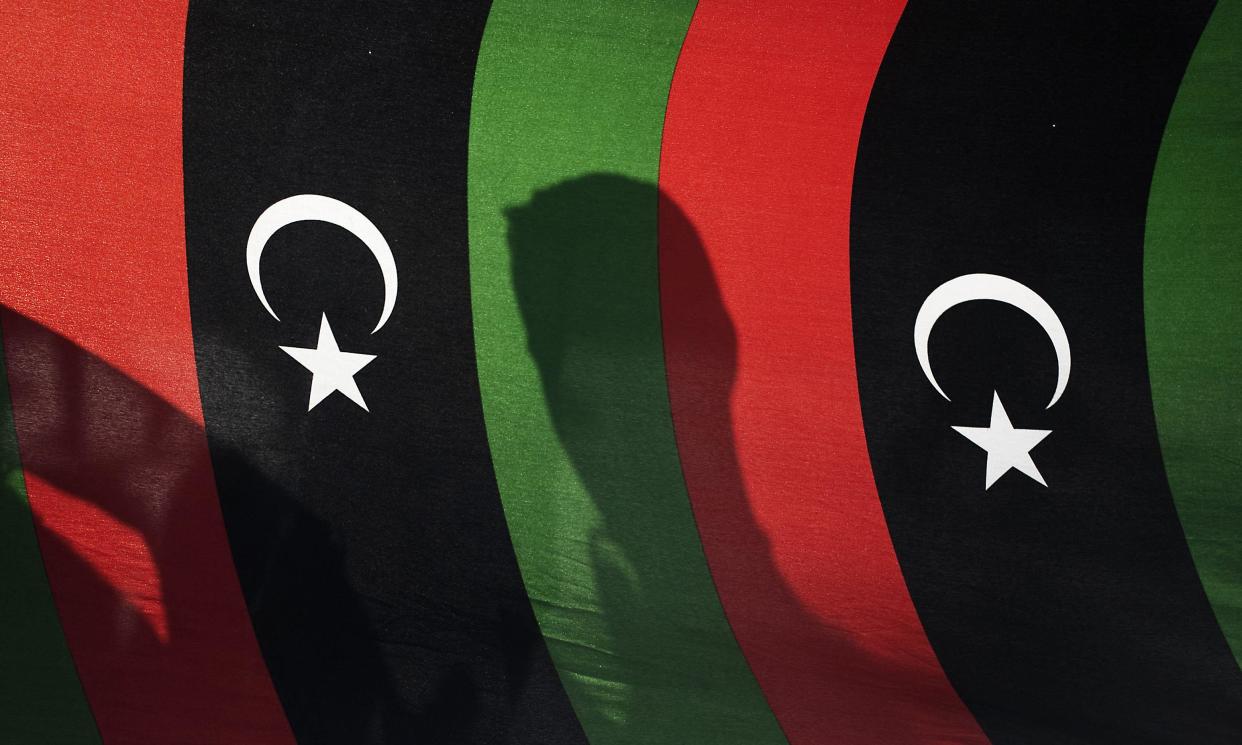Six Libyans face death penalty for converting to Christianity

Six Libyans are facing the death penalty for converting to Christianity and proselytising under laws increasingly being used to silence civil society and human rights organisations, say activists.
The women and men – some from Libya’s minority ethnic groups, including the Amazigh, or Berbers, in the west of the country – were separately detained in March by security forces.
A US citizen was arrested by Libya’s Internal Security Agency (ISA) last month, but was released and is understood to have left the country.
The six Libyans have been charged under article 207 of the penal code, which punishes any attempt to circulate views that aim to “alter fundamental constitutional principles, or the fundamental structures of the social order”, or overthrow the state, and anyone who possess books, leaflets, drawings, slogans “or any other items” that promote their cause.
The ISA said in a statement that the arrests were to “stop an organised gang action aiming to solicit and to make people leave Islam”.
A lawyer for one of the detainees said their families discovered they had been arrested when videos of their confessions were posted online by the ISA.
One of the videos showed Seyfao Madi, an engineer and father of one child, confessing that he converted to Christianity in 2017 and had tried to convert others.
His face unclear in the video, Madi said: “I was born in 1977 and I was arrested by the Internal Security Unit for converting to Christianity. I joined a group of Libyans and foreigners inside Libya calling and circulating for Christianity.
“In 2016 my friend introduced me to other friends, among them a Christian from the US. We talked and discussed … then I converted the next year and he baptised me.”
His lawyer, who asked to remain anonymous for safety reasons, said he renounced his Christian faith under torture.
According to the human rights organisation Humanists International, Libya’s legislation is largely based around religion. An interim constitution, written after the ousting of former leader Muammar Gaddafi in 2011, guarantees non-Muslims the freedom to practise their faith.
However, continuing political fighting between the internationally backed Islamist government in Tripoli and the secular government in Tobruk means the constitution has been suspended.
Related: Libyan politicians’ pay goes up 40% as election impasse continues
“There has been an increase in the usage of article 207 against civil society activists and international organisations in Libya over the last year,” said Noura Eljerbi, a human rights activist who was forced into exile after receiving death threats for her work.
“Even now I keep being threatened for only defending freedom of beliefs. Society doesn’t accept discussions about freedom of beliefs.
“Before the arrest of those people, there was a fierce campaign against them on social media led by former regime supporters.”
Last year, seven activists were arrested by the ISA for alleged atheism. Two of them were released but the rest of the group are still behind bars.
A number of Libyan human rights activists have been killed or have had to flee the country. Those who remain work undercover for safety.

 Yahoo News
Yahoo News 
